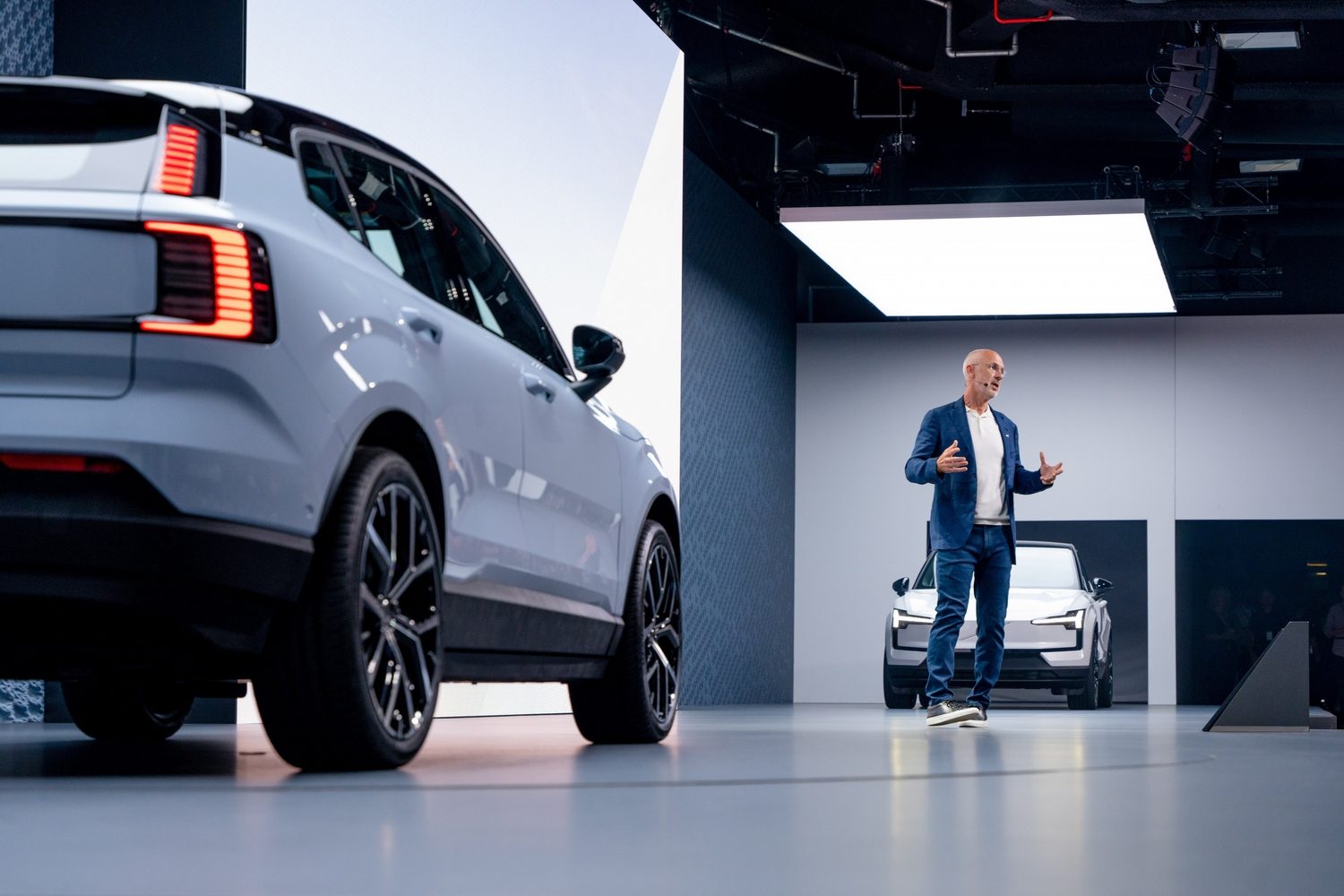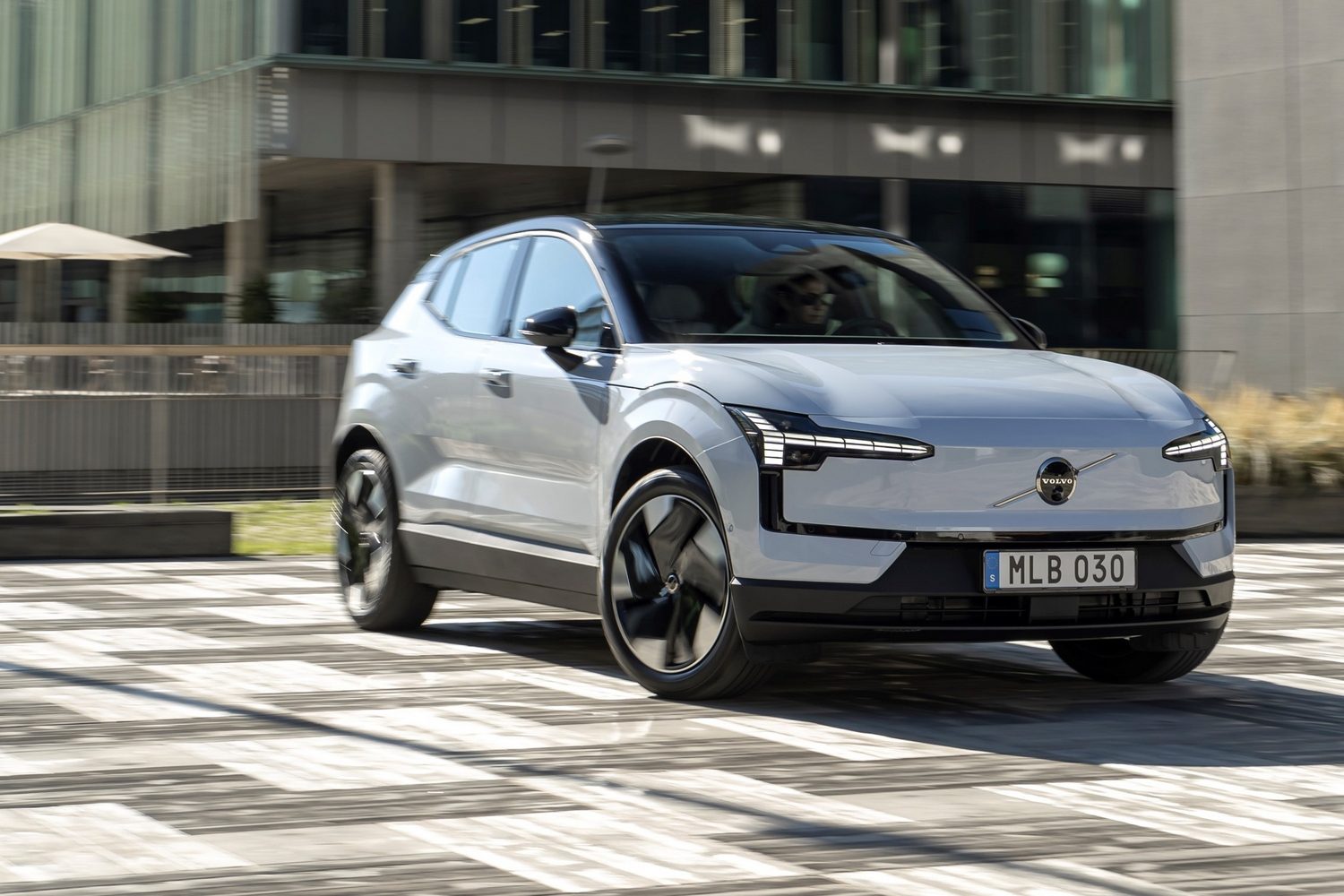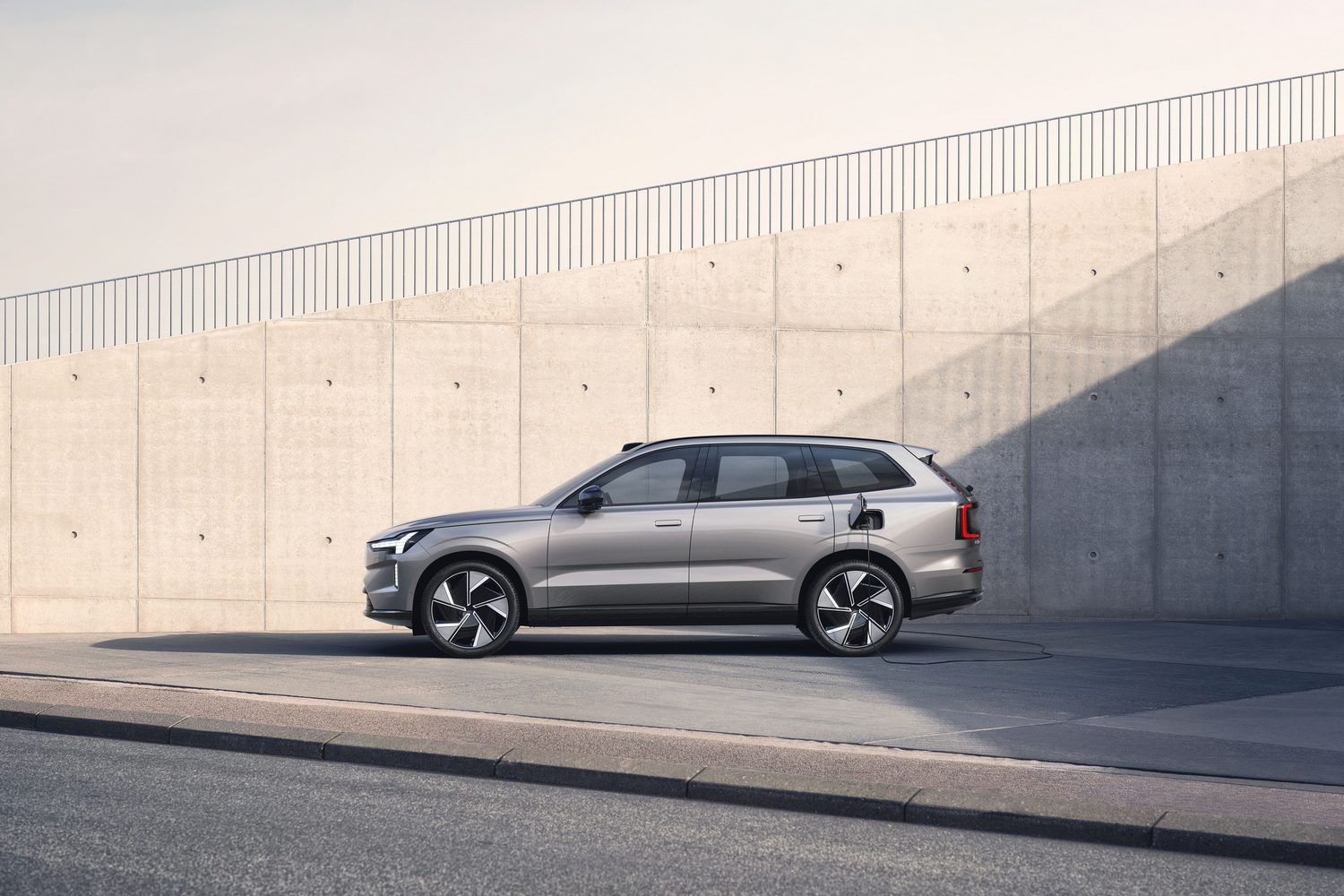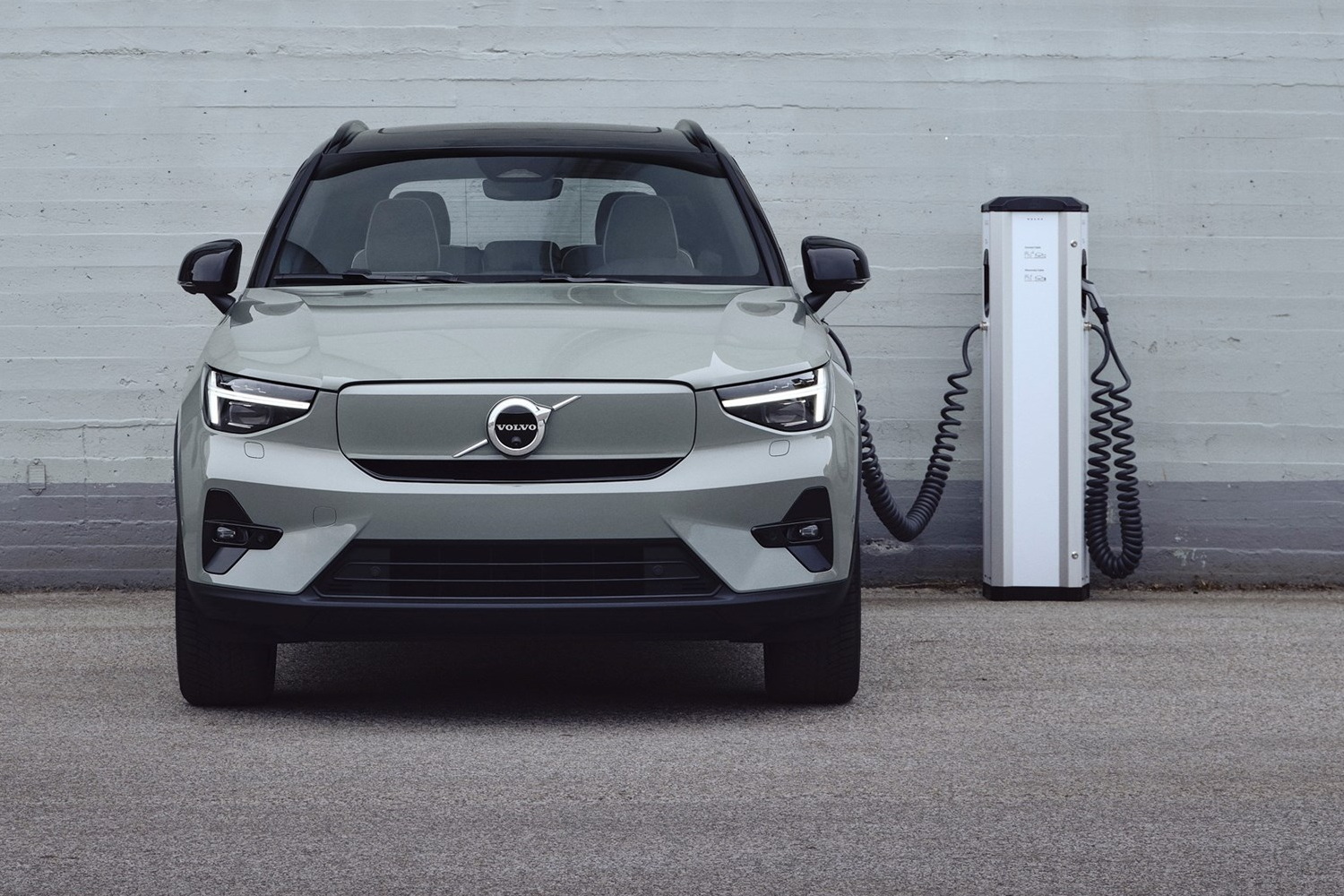Note: This article was written as part of a commercial content partnership between CompleteCar.ie and Volvo.
Volvo has said that it will make its last-ever diesel-engined car this year. The precise date hasn't yet been set, but before the summer of 2024, the last diesel-fuelled Volvo will have rolled off the production lines and out the door, into history.
It's part of a massive plan by Volvo not merely to become an entirely electric car company - which it hopes to do by 2030 - but also to make itself into a climate-neutral business, which is being planned for 2040 - a good ten years ahead of most other major corporations.
According to Volvo, while it will continue to make petrol engines - mostly as components of plug-in hybrid powertrains - for a bit yet it isn't going to invest in any new combustion-engine technology.

"Electric powertrains are our future, and superior to combustion engines: they generate less noise, less vibration, less servicing costs for our customers and zero tailpipe emissions," says Jim Rowan, chief executive at Volvo Cars. "We're fully focused on creating a broad portfolio of premium, fully electric cars that deliver on everything our customers expect from a Volvo - and are a key part of our response to climate change."
Happily, Irish Volvo customers seem to be getting on board with this shift to electric and electrified vehicles. In fact, last year, 95 per cent of all Volvos sold in Ireland were either fully-electric or plug-in hybrid models. This means that, of European nations, only Norway is ahead of Ireland in the electrified Volvo sales charts, while the likes of Finland, The Netherlands and France wallow in our wake. Heck, we even buy a higher proportion of electrified Volvos than California.
While this all sounds very jolly, there is of course a seriousness underpinning Volvo's plans. "What the world needs now, at this critical time for our planet and humanity, is leadership," says Jim Rowan. "It is high time for industry and political leaders to be strong and decisive, and deliver meaningful policies and actions to fight climate change."
This is not just about taking the emissions out of cars when they're being used. Switching to electric power clearly does that, but there are emissions to be tackled in how cars are made too. In that area, Volvo has said that by 2030 it wants to have reduced the total emissions from its cars, including making them, by 75 per cent, compared to the 2018 figures.

To do that takes rather more than sticking some solar panels on the factory roof. Emissions have to be trimmed all along the supply chain line and that starts with the very metal that Volvos are made from. To do that, Volvo has signed up to the World Economic Forum's First Movers Coalition (FMC) to invest in the zero-emissions production of aluminium. Volvo is also working in collaboration with Swedish steel producer SSAB to develop and produce near-zero emission, high-quality steel for the automotive industry. The processes for that are still ramping up, but Volvo expects to be using almost-emissions-free steel in its cars by 2026. Volvo says that meeting its latest target will require it to tackle CO2 emissions throughout its supply chain and its own operations including logistics, aiming to reduce them by 30 per cent each by 2030, compared to a 2018 baseline.
"COP28 is a historic accountability moment for climate action," says Javier Varela, chief operating officer and deputy CEO, Volvo Cars. "The world urgently needs to come together and act, to avoid the worst effects of climate change. We're committed to doing our part and we call on corporate and political leaders around the globe to also do theirs."

The new Volvo EX30 electric car is already playing its part. It's a compact model, so its impact on the environment is lessened, and it can be bought with a lithium-iron-phosphate battery pack, which uses fewer rare Earth metals and which is more robust and long-lived than a conventional battery. Volvo says that the EX30 is designed to have the lowest carbon footprint of any Volvo car to-date.
The Swedish car maker claims that as much as 69 per cent of its own operations were powered by climate-neutral energy in 2022. And since then, it has recently achieved 100 per cent climate neutral electricity across each of its plants, globally.

In the summer of 2023, Volvo also became the first global car maker to announce the switch from fossil fuel to biofuel for 86 per cent of its intercontinental ocean freight. This reduces its ocean freight CO2 emissions by 84 per cent and supports its ambition to reduce operational emissions.
"We have previously used the COP summits to push collective climate action and COP28 will be no different," says Jonas Otterheim, head of climate action, Volvo Cars. "What we and other like-minded companies are trying to do is develop and scale up transformational technologies to decarbonise sometimes ancient industrial processes. By joining the FMC and showing tangible progress in our partnership with SSAB, we hope to demonstrate that this vital shift is not just possible but is already underway."
Indeed, Volvo is already taking big chunks out of its vehicles' emissions. The company plans to reduce CO2 emissions per car by 40 per cent by 2025. During the first nine months of 2023, overall CO2 emissions per car were 19 per cent lower compared with the 2018 benchmark.

Currently, Volvo sells four all-electric models in Ireland, with one new one to follow later this year. The four are the EX30 which has a starting price of €44,995 before grant reductions, followed by the XC40 Recharge, priced from €58,210, and the C40 Recharge at €59,250. These cars are set to be rebranded the EX40 and EC40, respectively, while a new all-electric introduction this year will be the luxurious seven-seat EX90, which will have a starting price of €117,910.

While that is the same size as the XC90, this is still on sale for a little while yet in plug-in hybrid T8 form, priced from €98,500, while you can also buy the XC60 Recharge plug-in hybrid from €67,995. Finally, there's the handsome V60 estate plug-in hybrid for €66,500. All of Volvo's plug-in hybrid models have lengthy electric ranges on a full charge of their batteries, reaching a maximum of 91km for the V60 T6 plug-in hybrid.
Alan Cowley, Managing Director of Volvo Car Ireland commented: "We are thrilled to see more of our customers making the switch to electric. Those that are not quite ready to go into a fully electric car are opting for a plug-in hybrid. Ireland is second in Europe when it comes to Volvo customers driving plug-in hybrids in pure electric mode, which indicates Irish drivers are adopting to this new way of driving. A promising step towards the all-electric future of Volvo Cars."






















